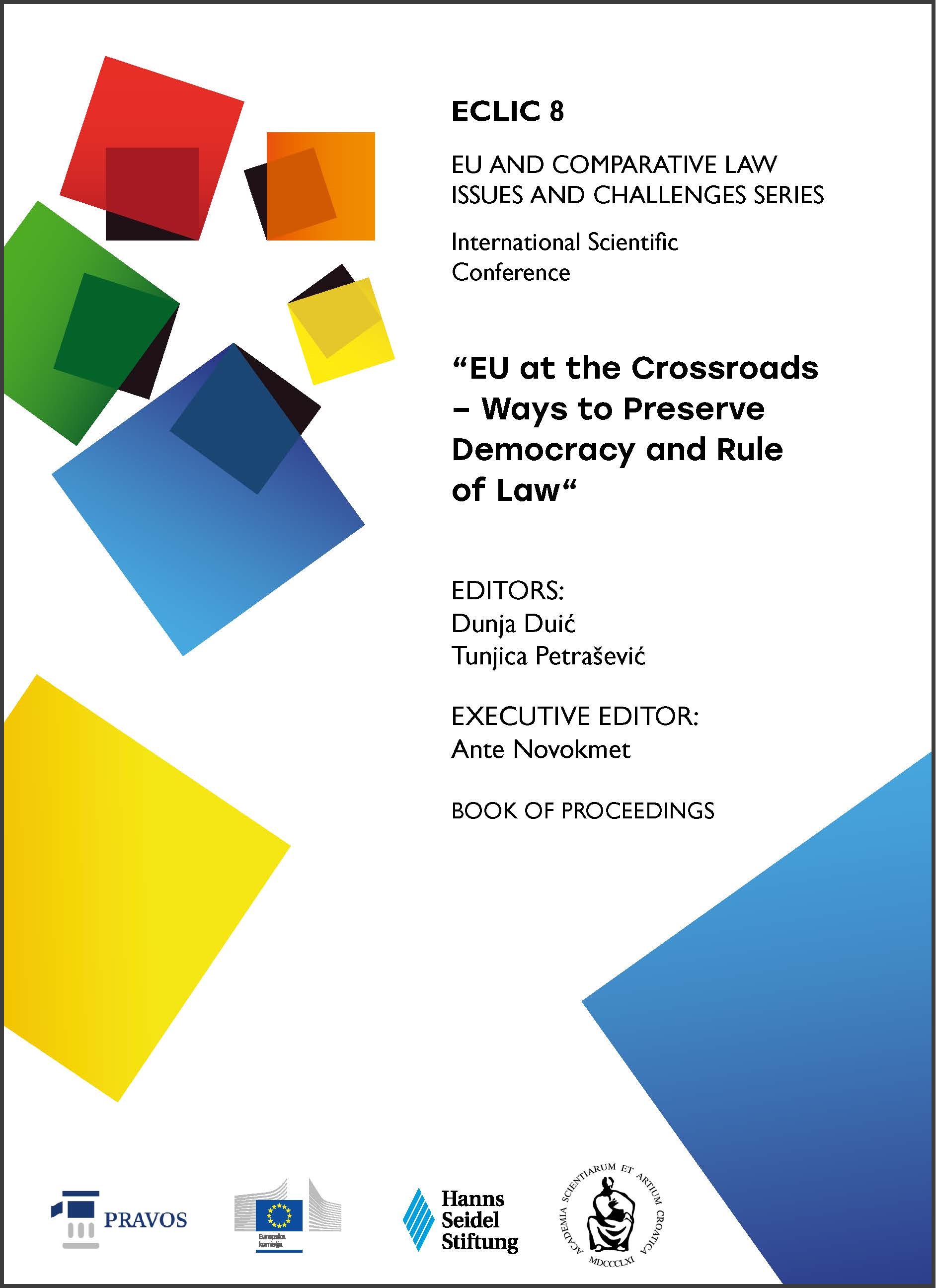ECONOMIC SANCTIONS BASED ON INTERNATIONAL AND EU LAW
DOI:
https://doi.org/10.25234/eclic/32285Abstract
The use of "sanctions" is an instrument of the Common Foreign and Security Policy for the EU, which aims to prevent and respond to various crises. The term "sanctions" covers a range of measures, particularly arms embargoes, travel restrictions, asset freezes and other economic restrictions. The EU currently applies several sanctions packages, some of which are part of a range of sanctions based on international law and others which go beyond it.
The economic effects of the restrictions also affect civil law relations. Their scope is not limited to the actors on the sanctions list but extends to persons directly and indirectly associated with them, ultimately affecting the legal relations of persons not on the sanctions list who have no economic links with the sanctioned country or region.
In the first part, the study provides an overview of the system of "sanctions policy", the reasons for and the means of applying restrictive measures, including an introduction to the powers and case law of the Court of Justice of the European Union concerning sanctions. The second part of the study deals with economic sanctions. Firstly, it identifies the scope of restrictive measures as economic restrictions. Secondly, it describes the civil law implications of economic sanctions from the courts' perspective when applying the law by describing the applicable legal provisions. On the other hand, the case law of the Court of Justice of the European Union will be presented to show the obligations imposed by the EU on the courts applying economic restrictions in the conclusion and performance of specific legal transactions and in resolving disputes arising from them.
The study is not concerned with assessing the necessity and effectiveness of sanctions but only with their effects as legal facts on the application of the law.
Downloads
Published
How to Cite
Issue
Section
License
Copyright (c) 2024 Gábor Fekete

This work is licensed under a Creative Commons Attribution-NonCommercial 4.0 International License.
Authors retain the copyright on the papers published in the Journal, but grant the right of first publication to the Journal. Papers accepted for publication or already published in ECLIC of the Faculty of Law in Osijek may be published by the author(s) in other publications only with proper notice of its previous publication in ECLIC.


